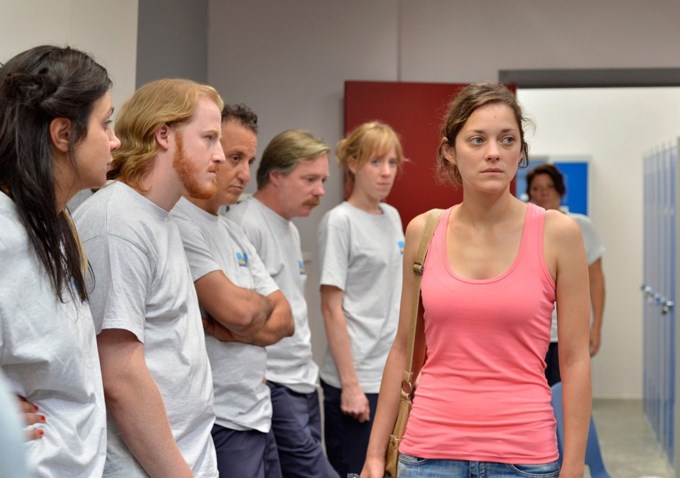TWO DAYS, ONE NIGHT
Starring Marion Cotillard, Fabrizio Rongione
Directed by Jean-Pierre Dardenne, Luc Dardenne
Marion Cotillard has worked exceptionally hard for her money of late. As an exploited newcomer to 1920s New York in James Gray’s gorgeous The Immigrant, she not only learned Polish but tapped a rich vein of anguish as she endured demeaning trials. Set in contemporary Belgium, Two Days, One Night is likewise a tale about “the things you do to survive.” However, as it’s directed by staunch social-realists Jean-Pierre and Luc Dardenne (L’Enfant), the film is stripped of any sweeping score or showy cinematography that might easily elicit emotion from a viewer. Instead, the heavy-lifting is all left to Cotillard.
Having just returned from medical leave, Sandra (Cotillard) discovers that her factory coworkers have voted to retain their bonuses rather than keep her on staff. When a friend (Catherine Salée) arranges for a revote, Sandra’s devoted husband (Fabrizio Rongione) encourages her to personally petition each of her colleagues to side with her. And so, she sets off into the suburbs of Liège, spending a weekend desperately trying to convince others of her value while staving off crippling depression.
The involving story that emerges serves as both a harrowing portrait of the ravages of mental illness and clear-eyed account of how financial hardship can spawn solidarity and self-interest in equal measure. On the latter count, the Dardennes slyly ensure that Sandra’s coworkers’ domestic situations subtly mirror her own. In turn, they illustrate how this leaves them completely sympathetic to her cause, yet often without the sense of security required to go out on a limb for her. In turn, Cotillard delivers a bold performance, refusing to make Sandra easy to like but earning our respect as she painfully drags herself towards empowerment.


